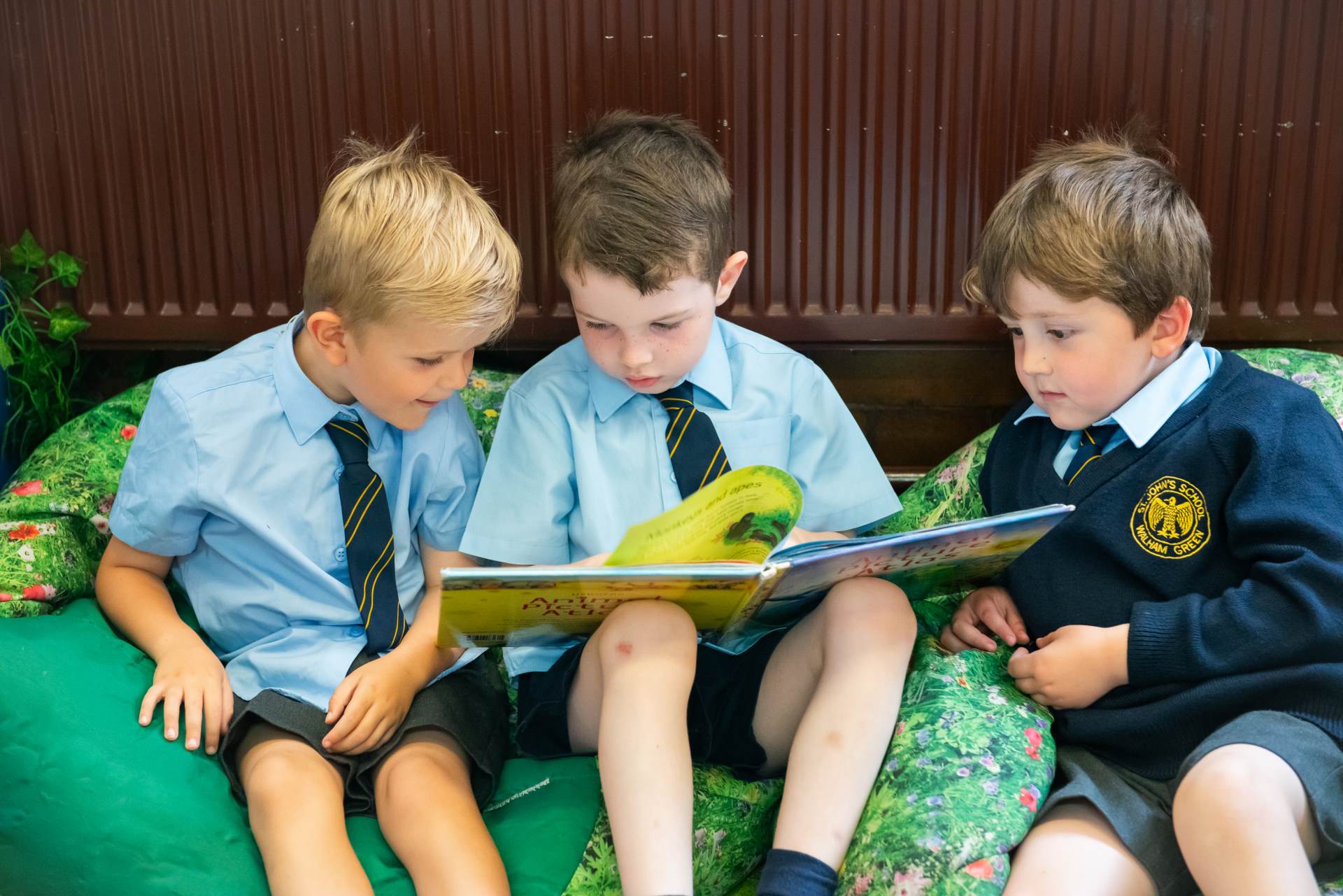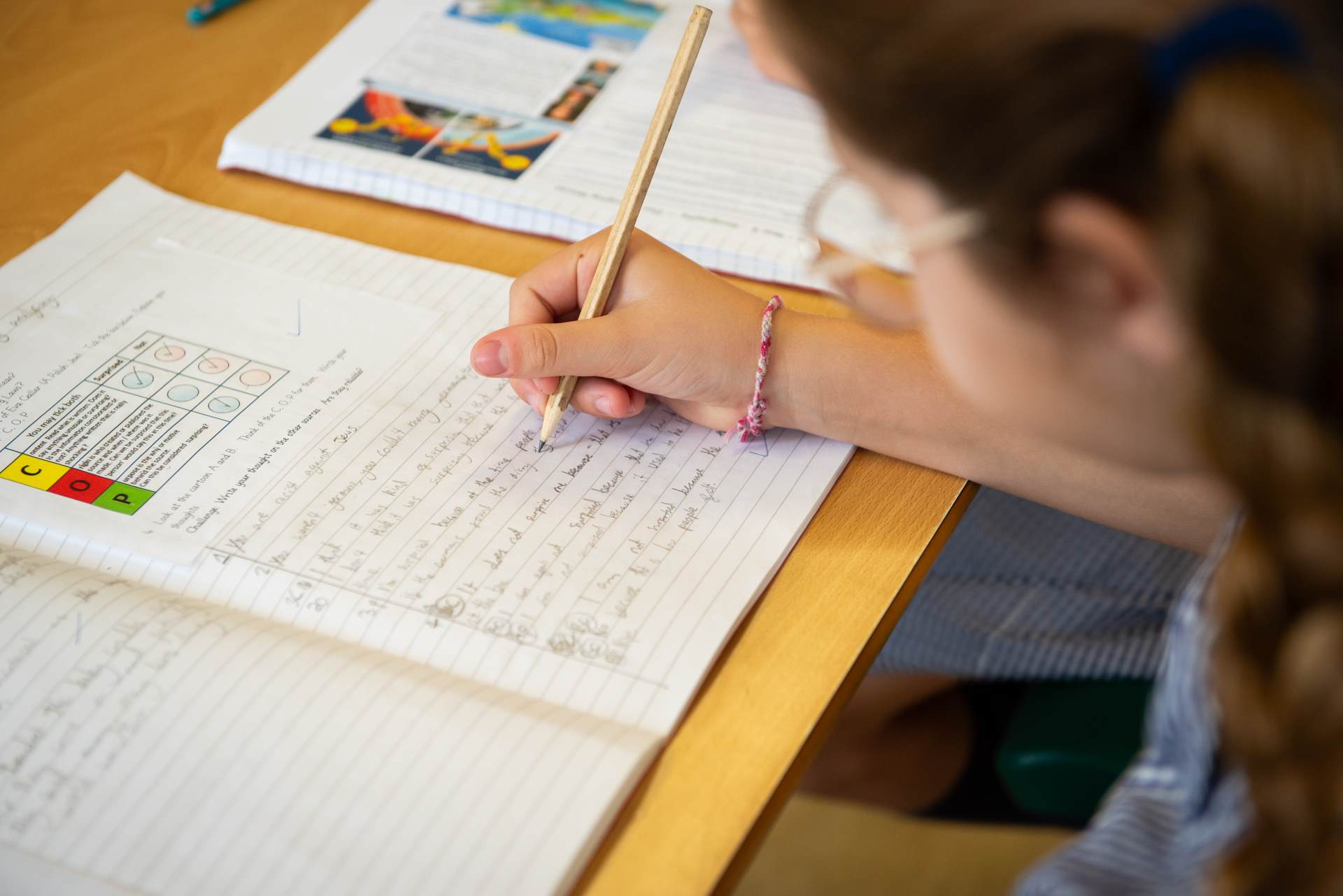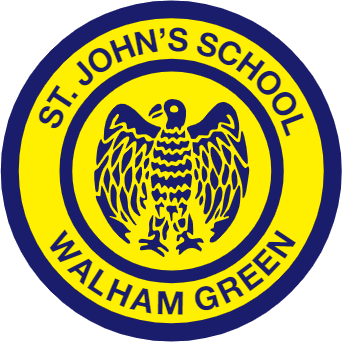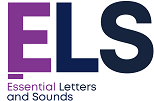English
Literacy
Literacy is a key skill that is essential for every other part of the curriculum. We aim to provide every child with the skills to communicate effectively in speech and writing. We prioritise the development of pupils' spoken language throughout our curriculum and intend that our pupils are inspired to develop a love of literature.
All of this is done with our three core Christian Values at the heart of everything: courage, compassion and wisdom. Courage never to give up and to persevere even when the learning is challenging; compassion to help create a shared understanding of how to treat each other both inside and outside of the classroom and to appreciate that we all learn in different ways and at different paces; wisdom to learn from our successes and our mistakes to help us make even wiser choices the next time.
Phonics
At St John’s Walham Green, through our DfE validated Essential Letters and Sounds phonics curriculum, we aim to create an enthusiasm and love for reading in our children, giving them the confidence and skills to read a wide range of books. Through high quality lessons, we aim for the children to develop the skills needed to decode new words through blending; spell new words through segmenting; and learn un-decodable high frequency 'Harder to Read and Spell' words by sight. We intend the curriculum to enable pupils to use these skills to decode any new word that they encounter. Our curriculum is in line with the National curriculum requirements and focuses on applying phonic knowledge as the primary route to recode words. Our phonics curriculum ensures every child can read well, quickly.
Reading
At St John’s Walham Green, we aim to create a community of independent readers with the skills to become critical thinkers, and learners both inside and outside the classroom. We aim to inspire children with a lifelong love of books and reading, because we understand the central importance of literacy to children’s holistic wellbeing and academic success. Through Early Years and Key Stage one, we prioritise the teaching of phonics to ensure all pupils can decode text to read with confidence and fluency.

Our wider reading curriculum aims to deliver a balance between teaching reading skills and reading strategies in line with the National Curriculum, with the ultimate goal of children gaining increasingly complex comprehension of a text. In developing reading for comprehension, our curriculum exposes children to a range of form and genre through high quality texts that broaden children’s reading experiences, help them to develop opinions and tastes, and be reflective about their own reading habits. In this way, we aim to create a culture of reading that inspires, motivates and equips children as they move on to the next stage of their education and beyond.
We understand that there is a direct link between reading for pleasure and attainment and therefore we aim to provide a breadth of inclusive enrichment opportunities to appeal to a diverse range of readers, interests and backgrounds.
Home Reading
From Reception onwards, we provide children with a range of fiction and non-fiction decodable books to be read at home. These books contain only sounds that the children have been taught through phonics lessons and interventions. These books are precisely matched to our ELS Phonics scheme progression . Children should read these books aloud to an adult at least three times during the week. It is intended that pupils should be able to decode (or sound out) all words independently and any (undecodable) 'Harder to Read and Spell' words should be recognised by pupils on sight. These texts should be read confidently and fluently, allowing pupils to experience success and develop a positive 'I can' approach when reading. We encourage parents and carers to discuss the plot, characters and setting of fiction stories and the content and layout choice made by authors in non-fiction texts. We ask Early Years and KS1 parents and carers to make a comment about their child's reading in the School Planner reading diary.
Once a child has completed the phonics scheme, they are supported and guided by staff to become 'free readers'. For most children this means that staff continue to support children in their choices of texts while children learn how to select appropriate books more independently. Children in KS2 should keep a record of their reading and complete reading challenges in their School Planner reading diary.
All pupils bring home a weekly library book. For children still developing their decoding skills through phonics, it is intended that these books are shared with an adult who should read the text to and/or with their child, as appropriate. We strongly encourage all parents and carers to read to their children, as often as possible, throughout their primary school lives; this gives children further opportunities to become immersed in stories, develop a rich vocabulary and foster a love of literature.
We offer regular 'Book Swap' events to allow children to pick a book to take home and keep from a selection of books swapped in by our school community. Come and choose a book to keep!
Writing
At St John’s Walham Green we aim to provide our children with a high-quality education in writing that will develop their ability to write with fluency and to master the mechanics of writing, therefore equipping them with fundamental skills, imperative in their continued education and life beyond. As an integral part of our curriculum, we intend to contribute to the development of children as thinkers and learners, instilling a love of and true interest in writing.

The National Curriculum summarises two dimensions in which it believes children should be competent: transcription and composition. All pupils, from Early Years to Year 6, are given many opportunities to develop their skill and knowledge, creatively and imaginatively, both inside and outside of the classroom. These opportunities include writing for purpose, and across diverse and authentic audiences. It is our intention that the curriculum is inclusive and accessible to all groups of children in our school.


